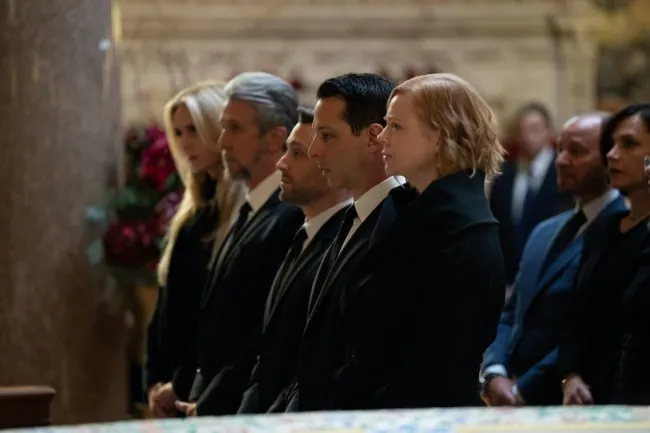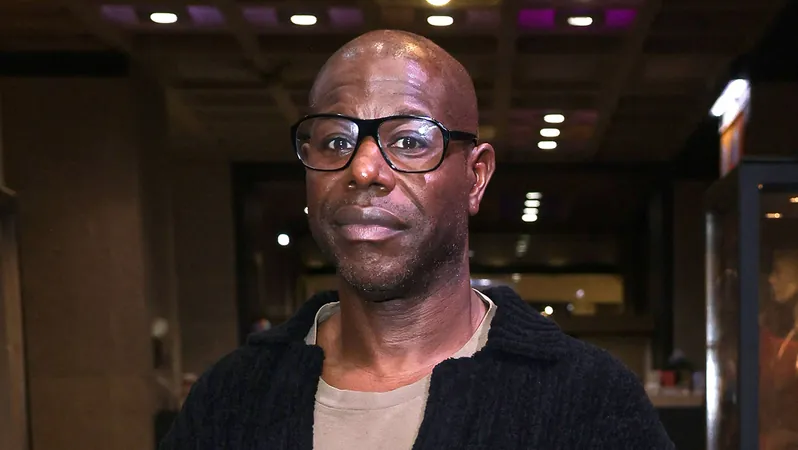
Ben Affleck Proposes a Wildly Engaging Ending for “Succession” as He Talks AI and Content Creation
2024-11-15
Author: Ying
Introduction
Ben Affleck, the Oscar-winning actor and director, has expressed his admiration for HBO's critically acclaimed series "Succession," but recently, he took it a step further by sharing his unique vision for how the show could have wrapped up.
Affleck's Vision for the Ending
During CNBC's Delivering Alpha 2024 event, Affleck engaged in a thought-provoking discussion about the influence of artificial intelligence (AI) in storytelling.
Affleck highlighted the transformative potential of AI in creating customized content. "Imagine being able to request your own episode of 'Succession' for a small fee," he suggested. "You could craft a scenario where Kendall takes over the company and embarks on an affair with Stewy. Sure, it might be a little rough around the edges, but it could capture the essence and character dynamics we love." In his view, AI could innovate how stories are told, offering fans personalized narratives.
Limitations of AI
Affleck, however, also acknowledged the limitations of AI, stating that while it can imitate historical styles and create content based on existing narratives, it lacks the creativity and emotional depth that human writers and actors bring to projects. "AI can replicate styles, but it can’t generate original stories equivalent to Shakespeare," he noted, emphasizing the essential role of collaboration among creative professionals, which AI has yet to master.
Broader Implications of AI in Hollywood
Affleck went on to discuss the broader implications of AI in Hollywood, suggesting that it could streamline filmmaking by taking over less creative tasks, thus reducing costs and democratizing the industry for aspiring creators. He envisions a future where many more voices can emerge in the storytelling landscape, thanks to AI's ability to lower barriers to entry.
Equity for Actors
During the summit, Affleck also touched on the notion of equity for actors in the projects they participate in. With the advent of social media, he argued that actors are now perceived as valuable intellectual property investments, and they should have a stake in the success of their projects. "The mentality in Hollywood often reflects a short-term cash grab, which contrasts starkly with the long-term vision needed to nurture genuine talent and creativity," he stated.
Insights from Experience in Filmmaking
Moreover, Affleck shared insights from his conversations with fellow filmmakers about the importance of understanding the economics of filmmaking. His experience over 30 years in the industry has taught him that successful projects require smart financial planning, creative collaboration, and a commitment to nurturing talent. He recalled strategic decisions from the production of "Good Will Hunting," underscoring how they incentivized Robin Williams to join the project, thereby ensuring it was both financially viable and creatively enriching.
Conclusion
In a landscape ever-changing due to technology, Affleck believes that creators must adapt and find new ways to collaborate and profit from their work. As the film industry evolves, he foresees significant opportunities emerging, driven by the intersection of creativity and innovation.
Affleck's insights not only reflect his storied career but also signal a willingness to embrace the future of storytelling, one where collaboration, AI, and equitable compensation might redefine Hollywood.




 Brasil (PT)
Brasil (PT)
 Canada (EN)
Canada (EN)
 Chile (ES)
Chile (ES)
 España (ES)
España (ES)
 France (FR)
France (FR)
 Hong Kong (EN)
Hong Kong (EN)
 Italia (IT)
Italia (IT)
 日本 (JA)
日本 (JA)
 Magyarország (HU)
Magyarország (HU)
 Norge (NO)
Norge (NO)
 Polska (PL)
Polska (PL)
 Schweiz (DE)
Schweiz (DE)
 Singapore (EN)
Singapore (EN)
 Sverige (SV)
Sverige (SV)
 Suomi (FI)
Suomi (FI)
 Türkiye (TR)
Türkiye (TR)